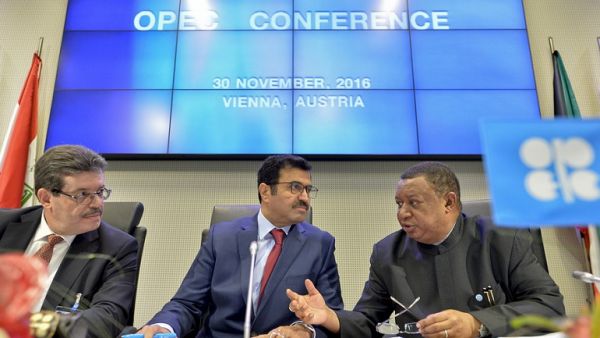Uncertainty about what happens next with an OPEC-led production cut and lower-than-expected supply drains pushed oil prices lower on Wednesday.
Crude oil prices drifted between slight gains and losses in the Tuesday session as a White House budget proposal that called for the sale of millions of barrels of strategic reserves balanced against rumors circulating around the next possible move from parties to an effort led by the Organization of Petroleum Exporting Countries (OPEC) to balance the market with managed production declines.
A formal meeting on direction is set for Thursday in Vienna. Players already on the floor may have to consider which parties cut production, by how much and for how long. New producers may add their name to the agreement and exemptions for OPEC members Libya and Nigeria could complicate an easy outcome.
The uncertainty over what happens next drained on the momentum for a rally in crude oil prices that began last week when Russia and Saudi Arabia proposed extending the multilateral effort into early 2018, instead of the six months outlined in the original arrangement.
The price for Brent crude oil was down 0.13 percent about a half hour before the start of trading in New York to $54.08 per barrel. West Texas Intermediate, the U.S. benchmark for the price of oil, was down 0.37 percent to $51.28 per barrel.
The price for oil came under pressure from data released late Tuesday from the American Petroleum Institute on petroleum product inventories in the United States, the world's largest economy. API found crude oil stocks continued to decline, but the 1.5 million barrel drop was far less than the 2.8 million barrels expected from S&P Global Platts earlier this week.
The U.S. Energy Information Administration releases official data mid-morning.
Elsewhere, Russian oil company Gazprom Neft said in a report on first quarter operations that its production was stimulated by gains from its Arctic and Iraqi fields. At about 160 million barrels, first quarter production was up 4.8 percent from last year.
OPEC's production agreement counts Russia and the largest non-member state contributor.
By Daniel J. Graeber








